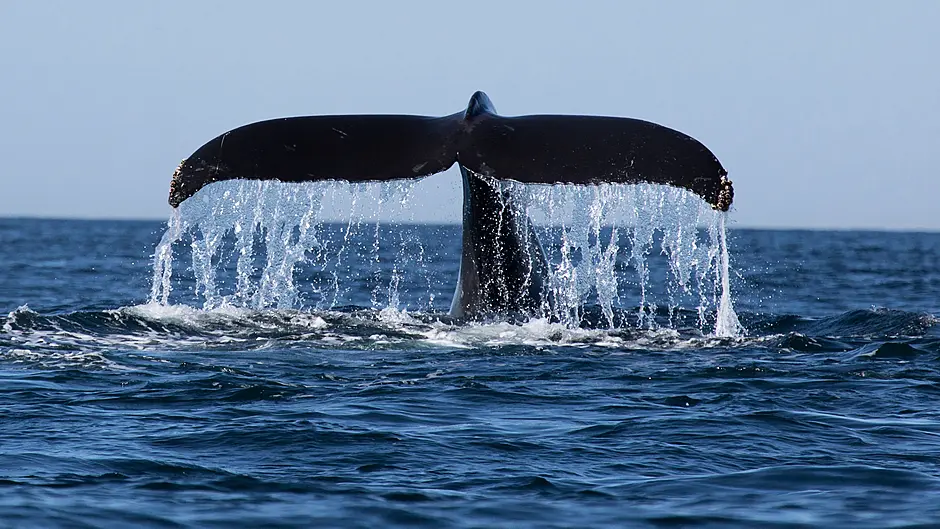ONE of West Cork’s longest operating whale-watching businesses has hinted that if things improve regarding the provision of sprat in West Cork waters, he may rethink his recent closure.
Colin Barnes, who operated Cork Whale Watch out of Reen Pier aboard the MV Holly for the past 25 years, announced the closure of his popular whale watching business last week.
He has claimed that the over-fishing of sprats by trawlers in West Cork waters has led to the whales moving away from the area as they have nothing to prey upon.
 Colin Barnes pictured in 2019 with a catch of sprat, displaying to his clients what whales feed on.
Colin Barnes pictured in 2019 with a catch of sprat, displaying to his clients what whales feed on.
Speaking to The Southern Star, Colin, who had spent most of his life on the sea, said West Cork waters are fished out and that one couldn’t call it world-class whale-watching anymore.
‘There’s a few local trawlers that have destroyed the ecology and all the fish are gone and the whales have moved out to forage elsewhere,’ said Colin.
‘There was nobody doing this type of business when I started in 2001 and now there are about nine or 10 operating and I’m sure they will find the situation the same down the line. We went out in April to see if we could see anything but all we saw were a few dolphins and minke whales but the humpbacks are gone.’
When he moved to West Cork in 1972 he worked as a fisherman for a number of years before starting up Cork Whale Watch in 2001, after it became apparent that the West Cork coastline was perfect for world-class whale-watching.
‘There has been an unbelievable reaction from the both the public and my previous customers to the closure. I’m not sure of my plans yet but if the sprat bounce back and the stock is repaired, I might hold onto the MV Holly and start again.’
He admits he will miss the business and meeting people too.
‘I’ve learned a lot and there is still a lot to learn when it comes to humpback whales even after 25 years. They are a difficult creature to study.’
In relation to coverage of the ‘Save our Sprat’ meeting in Bantry, The Southern Star wishes to clarify that the term is ‘pair trawling’ and not ‘twin trawling’, and that 17,000 tonnes of sprat were caught in Ireland in 2024. The article quoted speakers at the meeting who referred to an 8mm mesh size; representatives have clarified that the net holes are 8mm by 8mm and that 16mm is the smallest legal mesh size.









